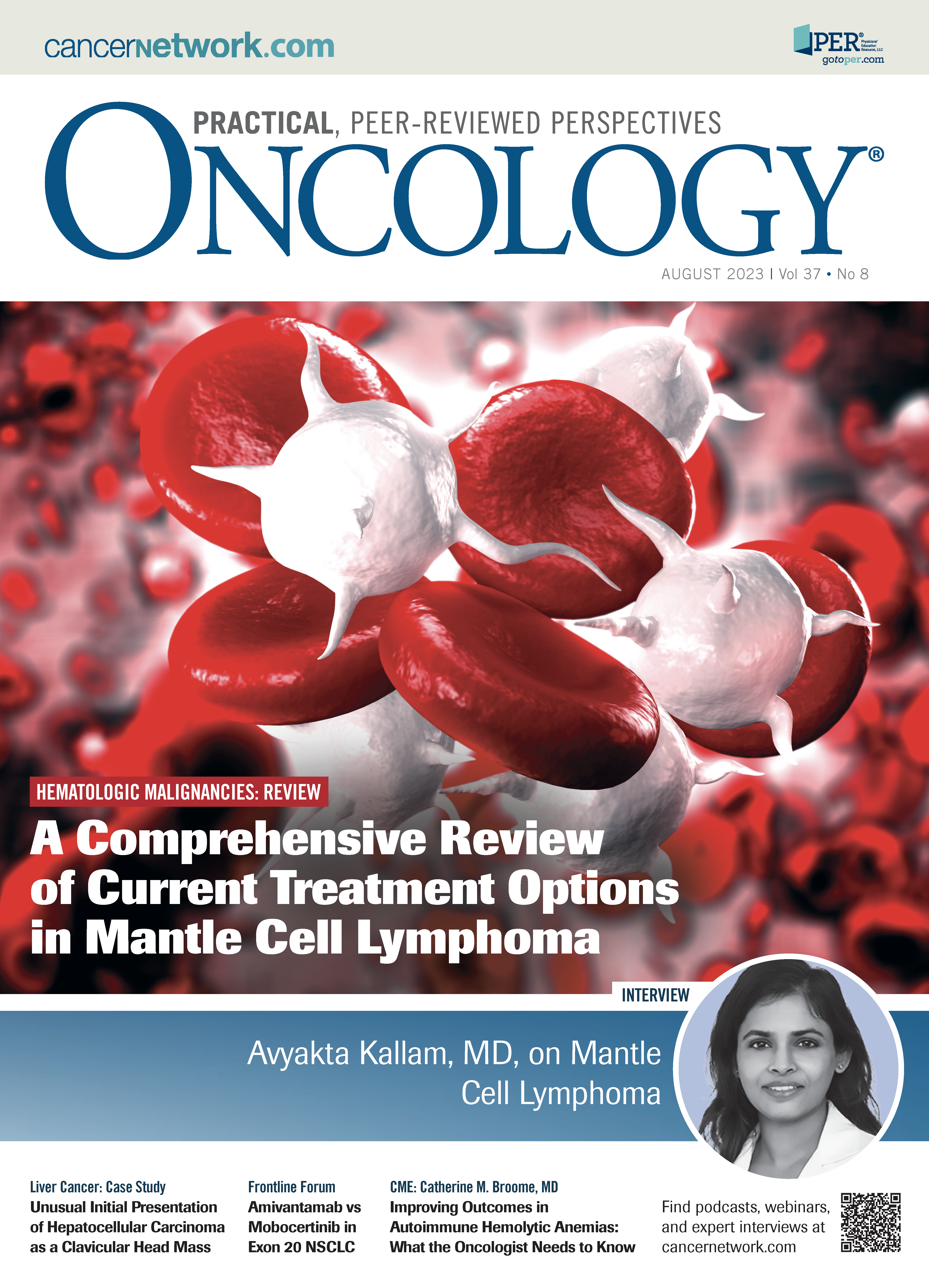Avyakta Kallam, MD, on the Future of Mantle Cell Lymphoma
Avyakta Kallam, MBBS, gave a look as to why she decided to compile a comprehensive review in mantle cell lymphoma.
Avyakta Kallam, MBBS, lead author of the ONCOLOGY August review article on mantle cell lymphoma, discussed the reasoning behind putting the study together. In her interview, she highlights important upcoming treatments, adapting treatments based on recent approvals, and what she hopes her colleagues take away from the article.
Avyakta Kallam, MBBS, Assistant Professor, Division of Lymphoma, Department of Hematology and Hematopoietic Cell Transplantation at City of Hope in Duarte, CA

Q: What led you to want to give a comprehensive overview of current treatments in mantle cell lymphoma (MCL)?
KALLAM: In MCL, there have been several developments in recent years. Several targeted therapies have been developed in the past few years and there are many more on the way. In addition to the development of new targeted agents, there has been a better understanding of the tumor biology and of high-risk [disease]. Given all the recent changes, we wanted to present a comprehensive overview of the new developments in MCL.
Q: Which ongoing trials show the most promise?
KALLAM: The trial that has been very exciting in recent times has been the phase 3 TRIANGLE study [NCT02858258].1 This was a large study designed to evaluate the benefit of ibrutinib [Imbruvica], a Bruton tyrosine kinase [BTK] inhibitor, with or without autologous stem cell transplantation in MCL. This study is exciting because even though it’s too early to draw conclusions and we need longer follow-up, this study potentially suggests that we could eliminate stem cell transplant in certain subsets of patients.
Q: Pirtobrutinib was recently approved by
the FDA. Have you adapted this treatment into your standard of care for the indicated patient population?
KALLAM: It’s exciting to have a new agent we can use in patients who have experienced progression on a BTK inhibitor. Pirtobrutinib has been approved recently in patients who had progression beyond 2 lines of therapy, including a BTK inhibitor. I’ve personally not had the opportunity to use this agent, but I intend to [in the future].
Q: What is something your colleagues should know in this disease space?
KALLAM: Risk stratification in MCL—specifically, knowing a patient’s TP53 mutation status prior to diagnosis—is helpful in determining treatment approaches because we know that presence of a TP53 mutation is associated with a poor response to standard chemoimmunotherapy. Clinical trial participation is strongly encouraged in these patients. Outside a clinical trial setting, I would recommend treating patients with targeted therapies, such as BTK inhibitors, over chemotherapy in certain subsets of patients.
Q: In your opinion, what is the main point of this review article?
KALLAM: Risk stratification is important. At the time of diagnosis, it’s very important to include targeted genomic sequencing to assess for TP53 mutations. The treatment paradigm in MCL is rapidly evolving. We could be using novel, biologically targeted therapies in the frontline setting. The outlook for patients with MCL who had progression on BTK inhibitors was initially very poor, but with recent advances—the advent of CAR T-cell therapy; bispecific antibodies; reversible, noncovalent BTK inhibitors such as pirtobrutinib—we have hope in this disease space.
Reference
1. Dreyling M, Doorduijn JK, Gine E, et al. Efficacy and safety of ibrutinib combined with standard first-line treatment or as substitute for autologous stem cell transplantation in younger patients with mantle cell lymphoma: results from the randomized TRIANGLE trial by the European MCL Network. Blood. 2022;140(suppl 1):1-3. doi:10.1182/blood-2022-163018
Highlighting Insights From the Marginal Zone Lymphoma Workshop
Clinicians outline the significance of the MZL Workshop, where a gathering of international experts in the field discussed updates in the disease state.
